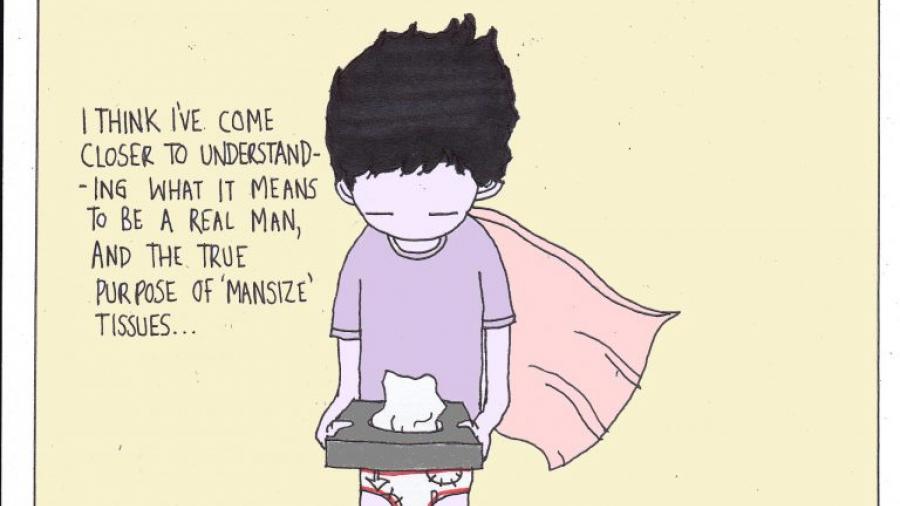At one of my recent surgeries, a constituent came to talk to me about male suicide. With figures showing that men are three times more likely to take their own lives than women, and with suicide being the biggest killer of men under the age of 45, it paints a bleak picture.
It’s vital that more is done to support those at risk, and those managing a difficult situation alone.
With a number of innovative campaigns raising awareness of male suicide, like the Movember Foundation, who encourage us to talk, ask, encourage action, and to check in with others, it’s helping to break down some of the taboo around seeking support, and tackling men’s health issues.
Another charity who are brilliantly using social media to get us talking about male suicide is the Campaign against Living Miserably (CALM). With campaigns like their #BestManProject, which focuses on the value of friendship, and their Disappointman cartoons, depicting unconventional superheroes who ‘celebrate the uncelebrated aspects of men’, they effectively promote and encourage the support that mates give one another, and also challenge traditional stereotypes of masculinity.
Social media is a great way to promote innovative campaigns which challenge and relook at the way the way we approach mental health. Yet we need to ensure that when people do seek help and support they are able to access it. I’ve been liaising with the mental health charity, Mind, and tabled some parliamentary questions about post-discharge mental health support.
I have serious concerns that NHS mental health funding pressures, coupled with cuts to local authority social care budgets, means that those at risk will struggle to get the support they need when they need it, including the support received following discharge from community services and mental health hospitals.
I will continue to challenge the Government on the damage caused by savage cuts to our support services, and the devastating impact of its cruel welfare reform agenda. An agenda which has been linked to a significant increase in anti-depressants being prescribed and, according to a report published by the Journal of Epidemiology and Community Health, “fit to work” tests, can be linked to 590 extra suicides over a three year period.
Each set of circumstances that leads to someone taking their own life is unique, a personal tragedy for both them and their loved ones, often with more questions than answers. However, the Government needs to do more to ensure that support services are available and properly funded, commit to a robust prevention strategy, and needs to urgently scrap damaging policies that cause unnecessary financial hardship and anxiety, like its current disability and sickness benefit assessment processes.
I am encouraged by charities like CALM, Mind, the Samaritans, the Movember Foundation, and many more, who are getting us talking about male suicide. Breaking down any stigma attached to talking about mental health can only be a good thing, and removing any additional barriers that stop people seeking support, because of gender, ethnicity, sexual orientation, or any other reason, is something we can all play a part in and support.
For more information about campaigns, or to access support you can contact the following organisations at:
CALM - Their helpline and webchat services are open from 5pm to midnight every day of the year; 0800 58 58 58. More information can be found online here: https://www.thecalmzone.net/about-calm/what-is-calm/.
The Movember Foundation – https://uk.movember.com/.
LGBT Switchboard – 10am-10pm every day; 0300 330 0630. Further details about this service are online here: https://www.brightonandhoveccg.nhs.uk/my-health-services/mental-health.
The Samaritans – Their helpline is open 24 hours a day, 365 days a year; 116 123. Further contact details and information is online here: https://www.samaritans.org/how-we-can-help-you/contact-us.
Mind in Brighton and Hove - https://www.mindcharity.co.uk/services/services-in-brighton-and-hove/advice-and-information/.
Brighton & Hove CCG’s Mental Health Rapid Response Service – 24 hours a day; 03003 040078. Further contact details and more information can be found here: https://www.brightonandhoveccg.nhs.uk/my-health-services/mental-health.




Join The Discussion